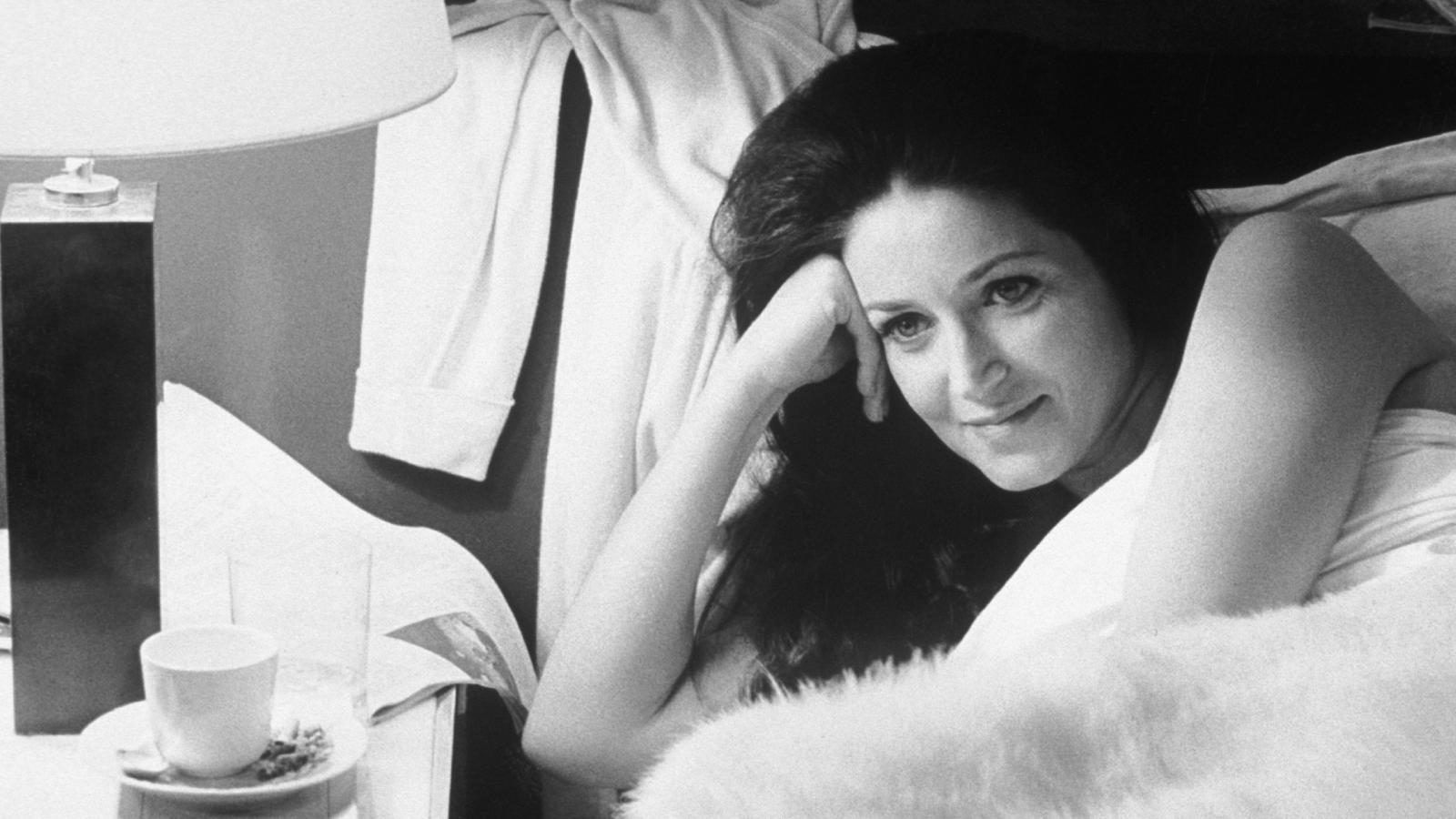Answering the Republic in the French New Wave
“A better life is provided for the unjust man than for the just man.” – Glaucon, Republic 362c.
Of the great directors of the French New Wave, perhaps the most criminally underrated is Eric Rohmer. Older than his Cahiers Du Cinéma peers, Rohmer is often somewhat forgotten beside the popular work of Jean-Luc Godard and Francois Truffaut and the radical work of Jacques Rivette. Yet Rohmer, who became the second editor in chief of Cahiers after the tragic and all too early death of André Bazin, stands out as producing one of the greatest and most consistent oœuvre of any director short of Stanley Kubrick or Andrei Tarkovsky.
Rohmer’s work is part of a less radical project from that of Jean-Luc Godard or even Francois Truffaut, let alone Chris Marker and Jacques Rivette. He sought not to create a new cinema, but to produce some of its most thoughtful work. He created films with a literary quality, inspired as much inspired by the nouveau roman as by the movies of Orson Welles and Howard Hawks that so inspired his peers.
As Emilie Bickerton argues in A Short History of Cahiers Du Cinema, Rohmer’s distinct focus can be seen in his criticism of Nicholas Ray. When watching films like Ray’s western Johnny Guitar (1954), where Godard and Rivette were overcome by Ray’s unprecedented cinematic moves, Rohmer was impressed by his deep understanding of morality and tragedy. Indeed, a classic story of lost lovers reunited underlies the groundbreaking visual style of Johnny Guitar. It is these stories that Rohmer strives to tell.
Rohmer’s early work is made up of a series of films known as the Six Moral Tales. Rather than six tales of different morals, each retells—with subtle distinction—the same moral. The moral question they address is a pressing one, at the heart of some of, both then and now, the most difficult questions of sexual morality and social conservatism. In each film, a man aspiring to virtue is attracted to a woman with whom he is not truly compatible. Rohmer’s tales are of finding restraint.
Rohmer’s contemporaries seem to revel in the new cultural regime. In Godard’s Masculin féminin: 15 faits précis (1966) and other early works, he explores stories of young lovers attempting to navigate these new social mores. We also find this in Truffaut’s semi-autobiographical Antoine Doinel series which tells the story of a young man trying to navigate life and love in Paris. These films concentrate on the emotional impact of youthful trials, but not necessarily their moral impact. Rather, the possibility of morality seems elusive in a world dominated by a growing commercial culture. This struggle is overwhelmingly existential.
In Une femme est une femme (1961), Godard tells a story of an exotic dancer attempting to convince her boyfriend to impregnate her. The possibility of finding stability and normalcy—foundational to the traditional moral life—becomes the subject of comedy. The dancer, played by Godard’s muse Anna Karina, continuously proves herself smart and charming, yet the possibility of a traditional life shows itself to be an absurd one.
Rohmer, conversely, seems to seek a distillation of his times. He works to comprehend life’s trials in moral terms, and suggests the possibility of autonomy even within the prevailing structures. In Rohmer’s œuvre, we find almost none of the meditations on imperialism and commercialism that are omnipresent in Godard’s work. It seems that such concerns simply aren’t as important to the everyday struggle of life well lived. Few form Maoist terrorists blocks, as Godard’s protagonists in La Chinoise (1967) do, but all struggle for a life of happiness. Rohmer might even feel that Godard’s protagonists are too quick to pin their personal dilemmas on geopolitical events or grand narratives rather than the more proximal causes of personal virtue and decision making. Rohmer’s struggles are always within the heart.
What is most interesting about Rohmer’s work is his recognition of the real and powerful temptation of modern culture. Unique in his mindset, Rohmer does not see the new world as fundamentally depraved nor its adherence as degenerate. His world is not that of Bret Easton Ellis’s Less Than Zero or Michel Houellebecq’s Elementary Particles, where libertine culture inevitably opens up a bottomless pit of perversion and corruption. Rohmer’s libertines are often likable, seemingly no better or worse than the film’s protagonists. Yet, he seeks to demonstrate that there is still an inherently better way to live—ruinous consequences don’t even factor in.
In the final moments of L’Amore l’apres-midi (1972), the last film of the Six Moral Tales series, the happily married Fédéric finds himself in the studio apartment of an illustrious and bohemian femme fatale with whom he has an undeniably deep connection. This woman, Chloé, is played to perfection by the French model Zouzou. As it is the last film, we, as viewers, in some sense know that Fédéric will be able to resist his temptations. But, watching Chloé step out of the shower and walk towards her bed, we cannot comprehend how he will be able to do so. Rohmer spares us nothing, allowing her allure to fully manifest itself. Yet, in spite of it all, Fédéric walks away.
Rohmer’s project in the Six Moral Tales reflects Plato’s task in the Republic. The Republic is, in some fundamental way, Socrates’ answer to Glaucon’s challenge: Why should we prefer to be just rather than unjust? Rohmer’s protagonists find themselves in a similar dilemma to the shepherd who discovered the Ring of Gyges. Why be loyal when infidelity would be so easy? Rohmer takes it upon himself to answer this question.
Perhaps the greatest work of the six tales is the fourth, Ma nuit chez Maud (1964). In it, Jean-Louis, a serious man striving to be a good Catholic among his secular friends, begins a discussion about Pascal and God with an old friend, a philosophy professor, whom he runs into at a café.
As the night progresses, he finds himself in the home of the tantalizing Maud—a beautiful woman recently separated from her husband. His friend leaves, and Jean-Louis realizes he must spend the night there with Maud. Jean-Louis knows Maud is not the right woman for him—he has already seen the perfect woman walking out of Mass. But he and Maud have a sincere connection, if not one that would lay the foundation for a strong marriage. Being with Maud would not even be true infidelity, he has not actually met his supposed perfect woman. Maud invites him into bed with her. Yet, despite her allure, Jean-Louis resists.
In the final moments of the film, Jean-Louis and the woman from Mass run into Maud on a beach. In their brief interaction, Jean-Louis realizes that his wife must have been the lover of Maud’s husband. With this revelation, we might expect Jean-Louis to rethink his decision, as he might, in some perverse sense, consider himself “equal” with his wife had he slept with Maud. But Jean-Louis simply smiles and moves on.
In Rohmer’s late work Boyfriends and Girlfriends (1988), we find a world in which the youthful characters have not heeded Rohmer’s wisdom. The film is seemingly innocuous: an almost boring story of love triangles in between windsurfing lessons. The relationships, despite their triangles, feel limp and lifeless. Lovers are betrayed and boyfriends are swapped, but it doesn’t really seem to matter to any of the participants. Where we once found passionate and intellectual conversation, there exists only emptiness and boredom. Life has become devoid of any stakes. This is Rohmer’s dystopia, his version of Ellis or Houellebecq, without pits of depravity but instead a sea of banality. For reasons that are seemingly incomprehensible while incredibly intuitive, Rohmer’s virtuous characters are satisfied in a way that the hedonistic characters yearn for but never achieve. Neither do the titular boyfriends or girlfriends seem unhappy but we reject these lives as undesirable all the same. They are soulless. Without souls, superficiality is inevitable.
How then, can we think of Rohmer answering Glaucon’s challenge? We do not see the protagonists’ decisions being clearly consequentially justified—i.e., that they end up happier because of their restraint. When Fédéric returns home after leaving Chloé’s, he and his wife embrace each other and cry ambiguous, but somehow optimistic tears. We also do not see them as regretful. In a way, it is almost hard to immediately see how each protagonist can justify his decision to restrain himself. Yet it is not immediately clear why their virtuous decisions are justified. Perhaps, because Rohmer’s answer is the same as Plato’s: To have been unjust and unloyal would have been to harm their souls. Jean-Louis loves his wife and their child, so he is happy. The protagonists of the tales are able to preserve their souls and regret nothing, and what fate could be better than that?
Featured Image: Film still of Maud (Françoise Fabian) from Ma nuit chez Maud.
Nick Whitaker is the Technology editor. He is a recent graduate of Brown University and the recipient of an Emergent Ventures grant. He invites you to follow him on Twitter.





